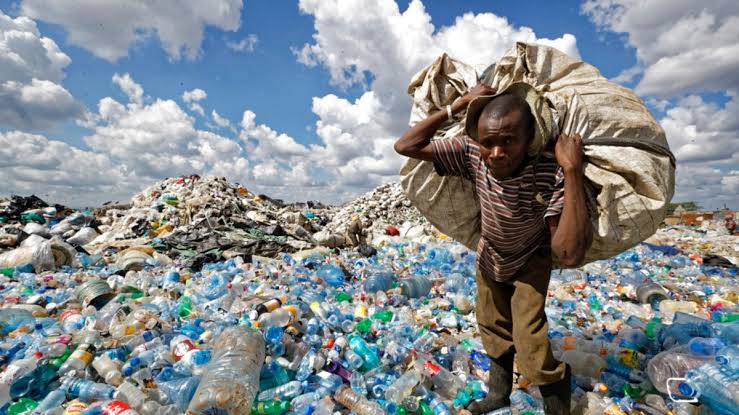Experts are sounding the alarm over Nigeria’s slow progress in addressing plastic waste. Weak enforcement of environmental policies and poor participation in Extended Producer Responsibility (EPR) schemes are putting the country at risk of a deepening plastic pollution crisis. Without firm regulatory action and broader engagement from producers, especially small-scale businesses, the fight against plastic waste in Nigeria may stall indefinitely.
At a recent media training held in Lagos by the Lagos Business School Sustainability Centre in partnership with Nestlé Nigeria, stakeholders stressed the need for urgent reforms. Dr. Olufunto Boroffice, CEO of waste recovery firm Chanja Datti, highlighted that many smaller plastic producers remain outside of regulatory frameworks. As a result, large multinational companies are left to carry most of the responsibility for cleanup and compliance.
Speaking on the topic “Plastic Neutrality in Africa: Myth, Marketing or Measurable Impact?”, Dr. Boroffice said real progress demands greater transparency and stronger commitment from all stakeholders. “A lot of smaller water and plastic-based producers are not part of the conversation. While some brands make public recycling pledges, only a few follow through. Local companies must contribute financially and actively take part in the EPR scheme,” she stated.
She linked the growing plastic waste problem to serious public health risks, noting a lack of collection and recycling infrastructure nationwide. Dr. Boroffice called on the media to increase public awareness, particularly through the use of local languages to better reach communities affected by pollution.
Citing a recent report by Plastics Recyclers Europe, she warned that the global recycling sector is also facing severe setbacks. The EU alone is projected to lose three times its 2023 recycling capacity by 2025 due to high operational costs, falling demand for recycled plastic, and an influx of cheap virgin plastic imports.
Supporting these concerns, Oreva Atanya, Director of the Lagos Business School Sustainability Centre, said the Nigerian government must invest more in the recycling value chain. She noted that such investment could simultaneously protect the environment and create employment opportunities.
Victoria Uwadoka, Head of Corporate Communications at Nestlé Nigeria, outlined the company’s zero-waste strategy. She explained that Nestlé is redesigning its packaging and working to remove as much plastic waste from the environment as it generates. She also emphasized the company’s local partnerships with recyclers such as Alef in Agbara, and its collaboration with the Lagos State Government, media organizations, and other stakeholders to develop sustainable, homegrown solutions.
Experts agree that without stronger enforcement, better infrastructure, and wider participation across industries, Nigeria’s battle against plastic waste will remain an uphill struggle. They urge immediate policy reform, increased public education, and collective action to reduce the environmental impact of plastic pollution.



